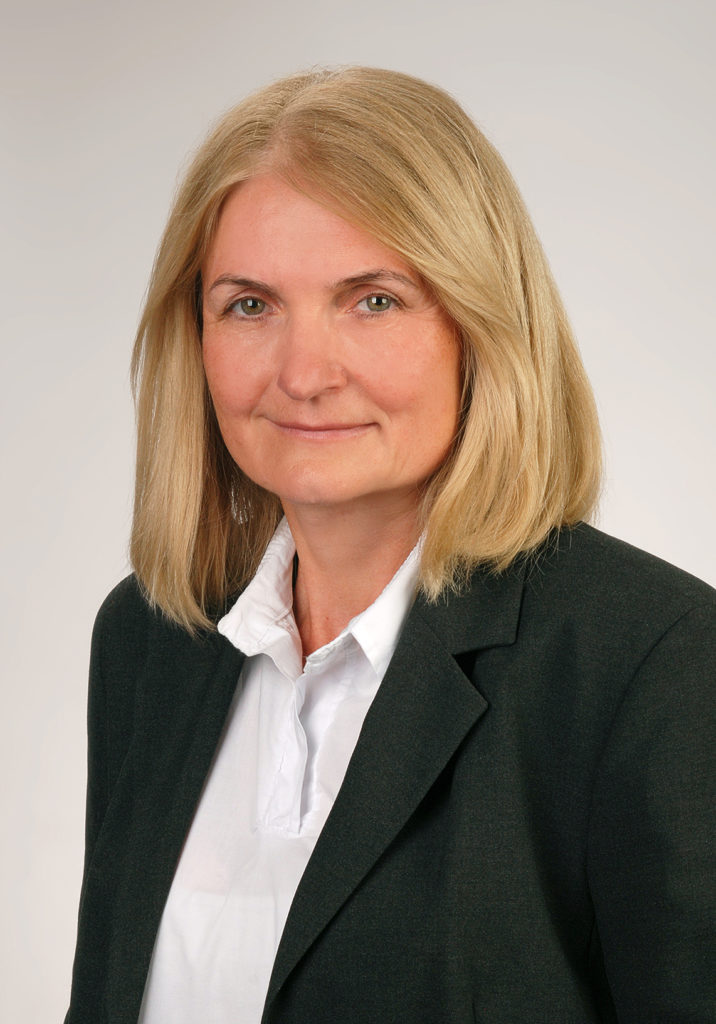The PMI team is growing. Today we talk to Beate Petschke, who takes care of training courses at PMI that focus on treatment concepts that combine SUPRATHEL® or SUPRA SDRM® with other products from the portfolio.
Beate, how long have you been with PMI?
I have been working at PolyMedics Innovations in the Medical Affairs department since April 1, 2024. I organize and hold training courses and thus support our field service team. This involves the combination of NexoBrid® and/or RECELL® with SUPRATHEL®, SUPRA SDRM® and NovoSorb® BTM as a treatment concept. If hospital staff, doctors and nurses have technically demanding questions about product combinations and scientific data, then it is my job to answer them comprehensively.
What brought you to PMI?
I was fascinated by the new portfolio that PMI offers in DACH. New to the PMI portfolio are the enzymatic debridement Nexobrid® and the autologous cell suspension RECELL®. NovoSorb® BTM has been distributed by PMI for some time. These products are potent solutions on their own, as well as in combination with PMI’s SUPRATHEL® and SUPRA SDRM ® products. It can be used to reach many different wounds and help with a wide range of indications!
A friend told me about this portfolio expansion. As a result of this message, I sat down at my desk for two days and prepared my application. I have to admit: I had PolyMedics Innovations on my radar for a long time. All that was needed was one more occasion.
How was your application received?
Very well, they were basically looking for someone like me.
“Someone like you” – good keyword: Can you briefly describe your career and main areas of activity?
I am a graduate engineer in chemical technology. My focus was on biotechnology and general chemistry.
At the beginning of my career, I worked on gene mutations that lead to breast and ovarian cancer. At the Charité, my tasks were to set up, organize and coordinate a multi-center project called TOC – Tumor Bank Ovarian Cancer.
At the German Institute for Cell and Tissue Replacement gGmbH, DIZG for short, I was responsible for the production of autologous cells. As the regulations for cell transplants became increasingly strict, audits, training and advice in the clinics became increasingly important. I have trained doctors in the correct application and was also very often present at the operating rooms and developed procedure and application guidelines with the doctors to ensure proper use.
During my time at the DIZG, I dealt with wounds, both burns, traumatological and chronic wounds. I therefore know most of the areas of application of PMI products from my own experience.
You said earlier that PMI had been on your radar for some time. When did you first come into contact with the company or its products?
The first time PMI piqued my interest was quite early in the development of PMI. It must have been in 2007. I could think of SUPRATHEL® as a cover for the cells we were cultivating and using. I also met my field colleagues regularly and at congresses and conferences.
What are your goals for and with PMI?
It is important to me that all patients receive the best possible treatment with modern, up-to-date products, in the right application and combination. PMI has the appropriate products and a lot of experience for this. It is my job to pass this on to the medical staff. To this end, I am working throughout the DACH region.



